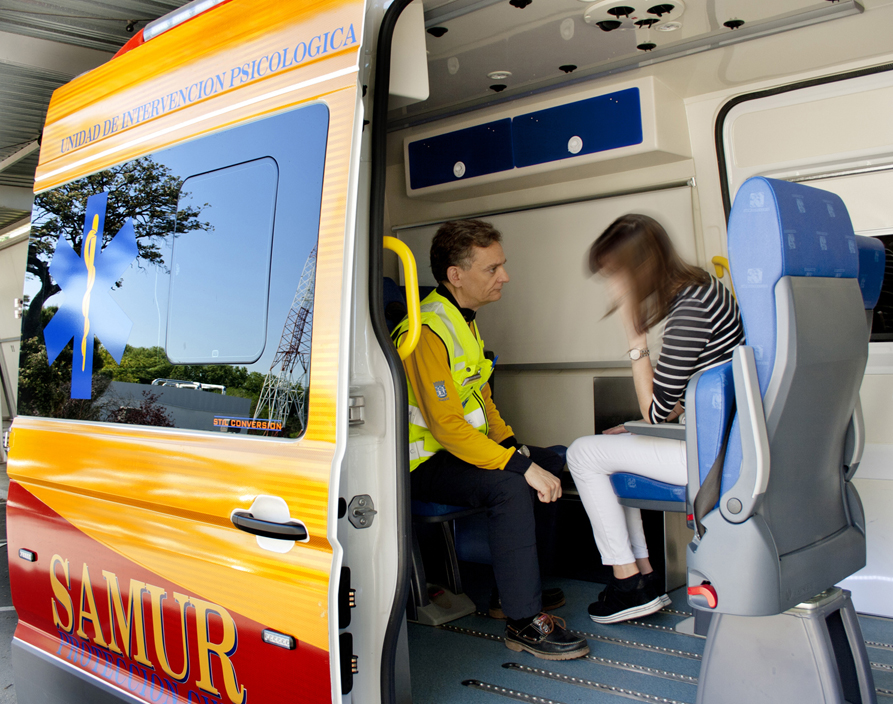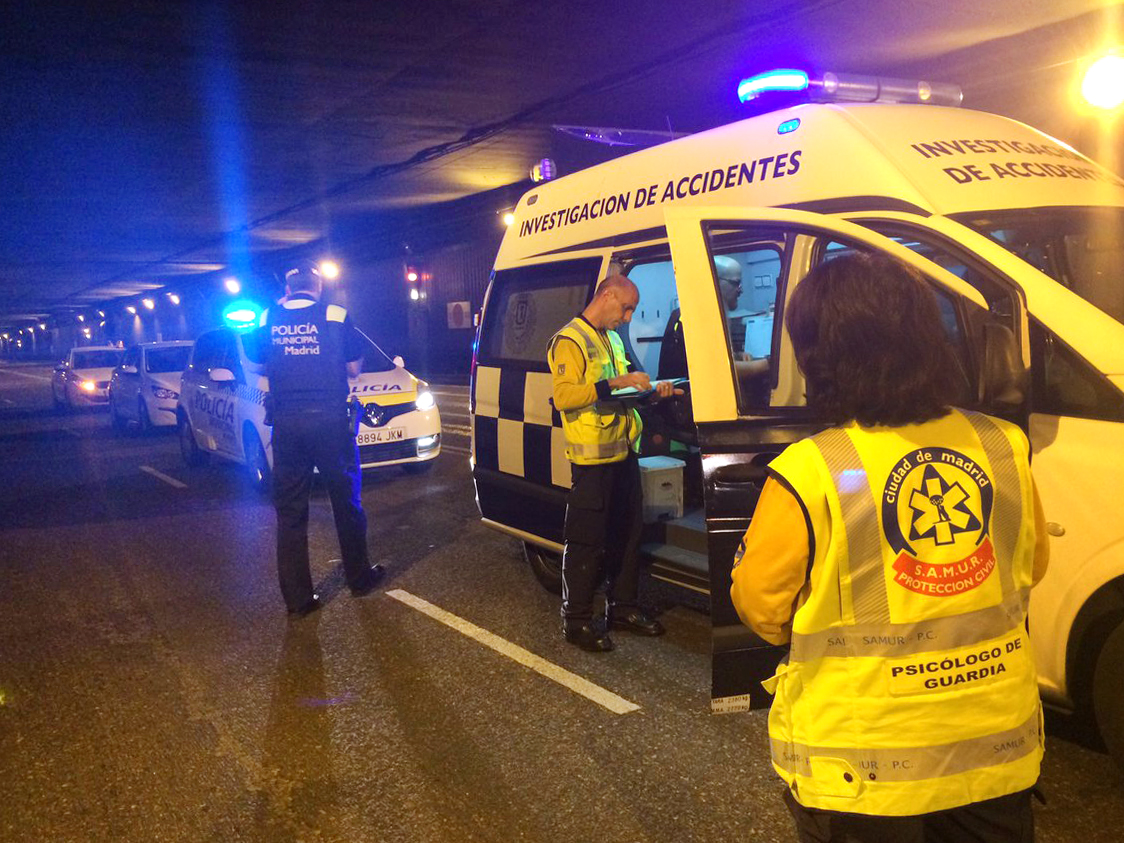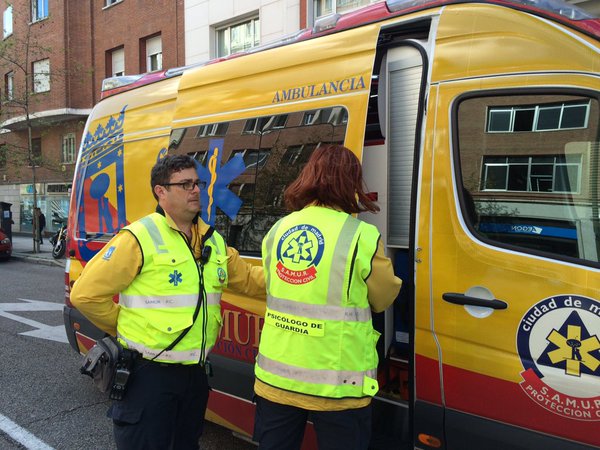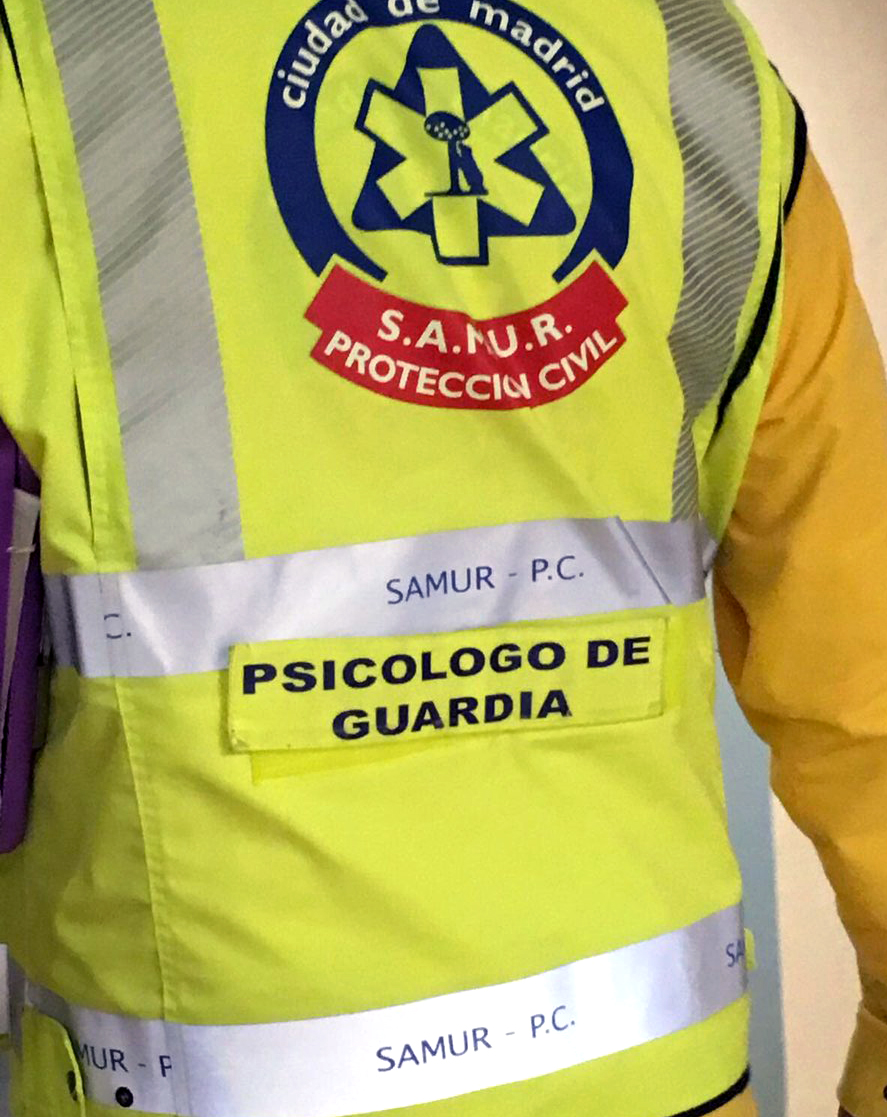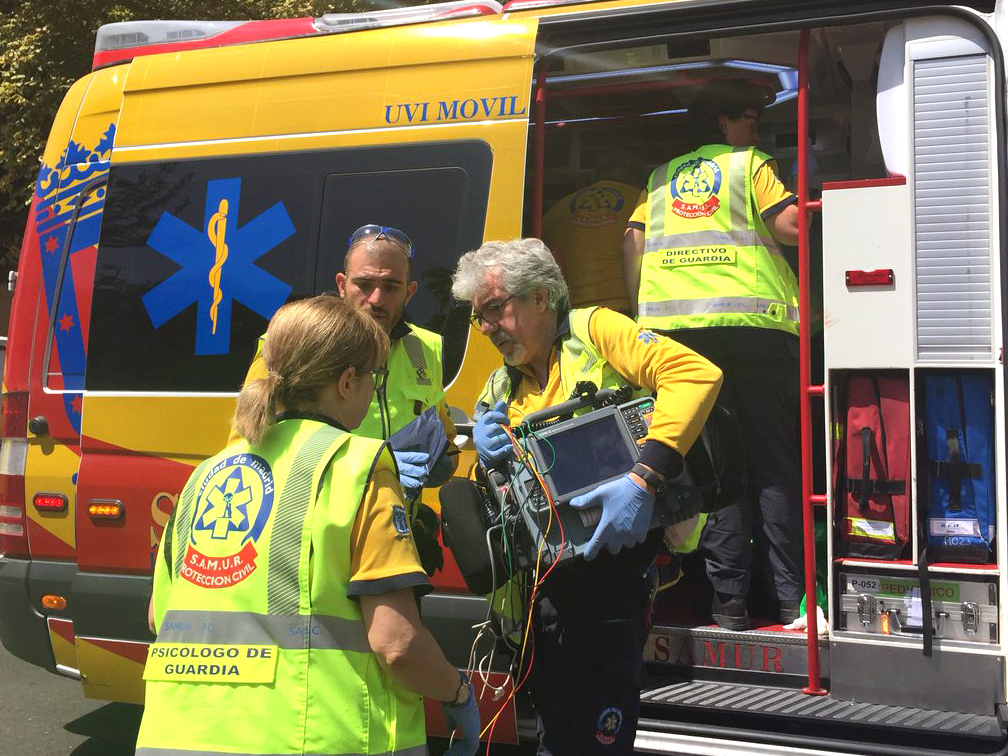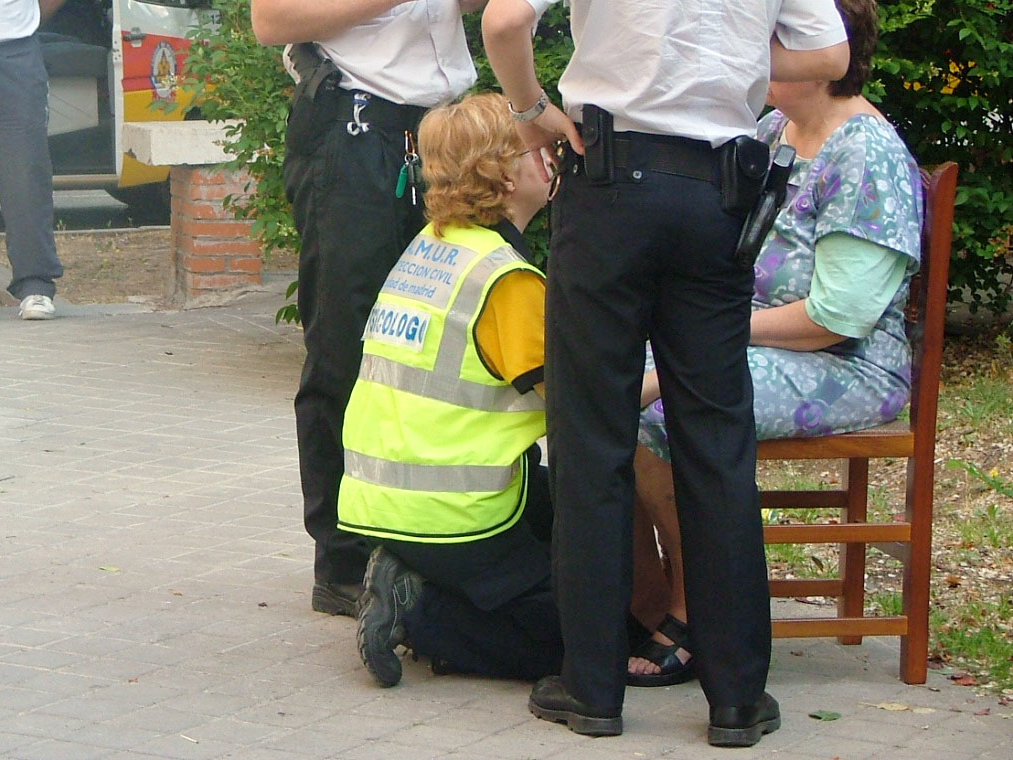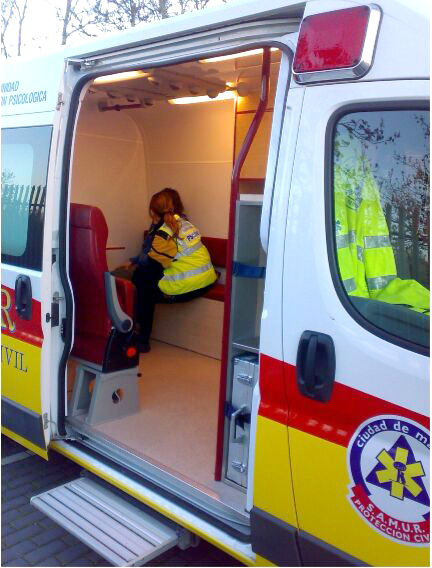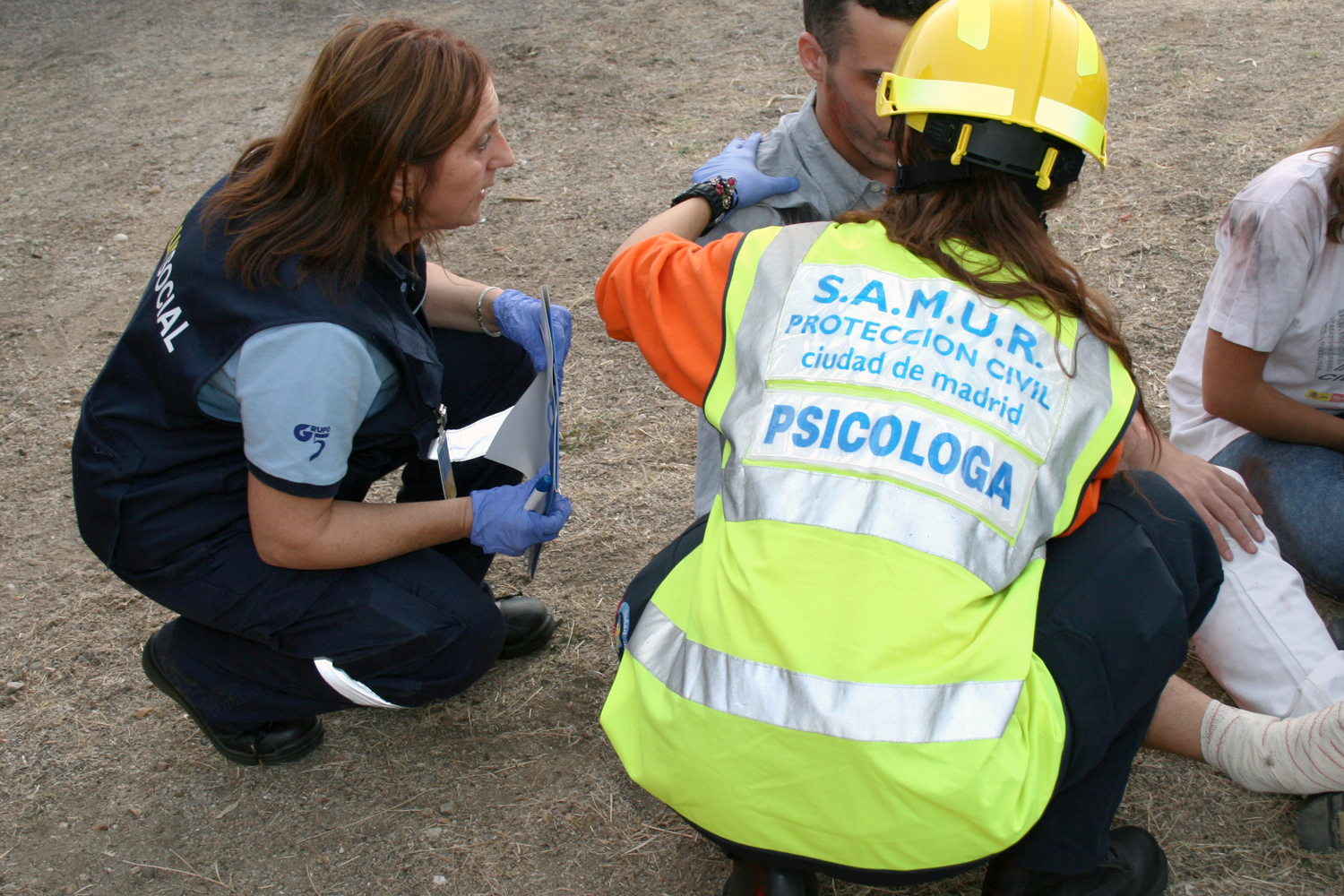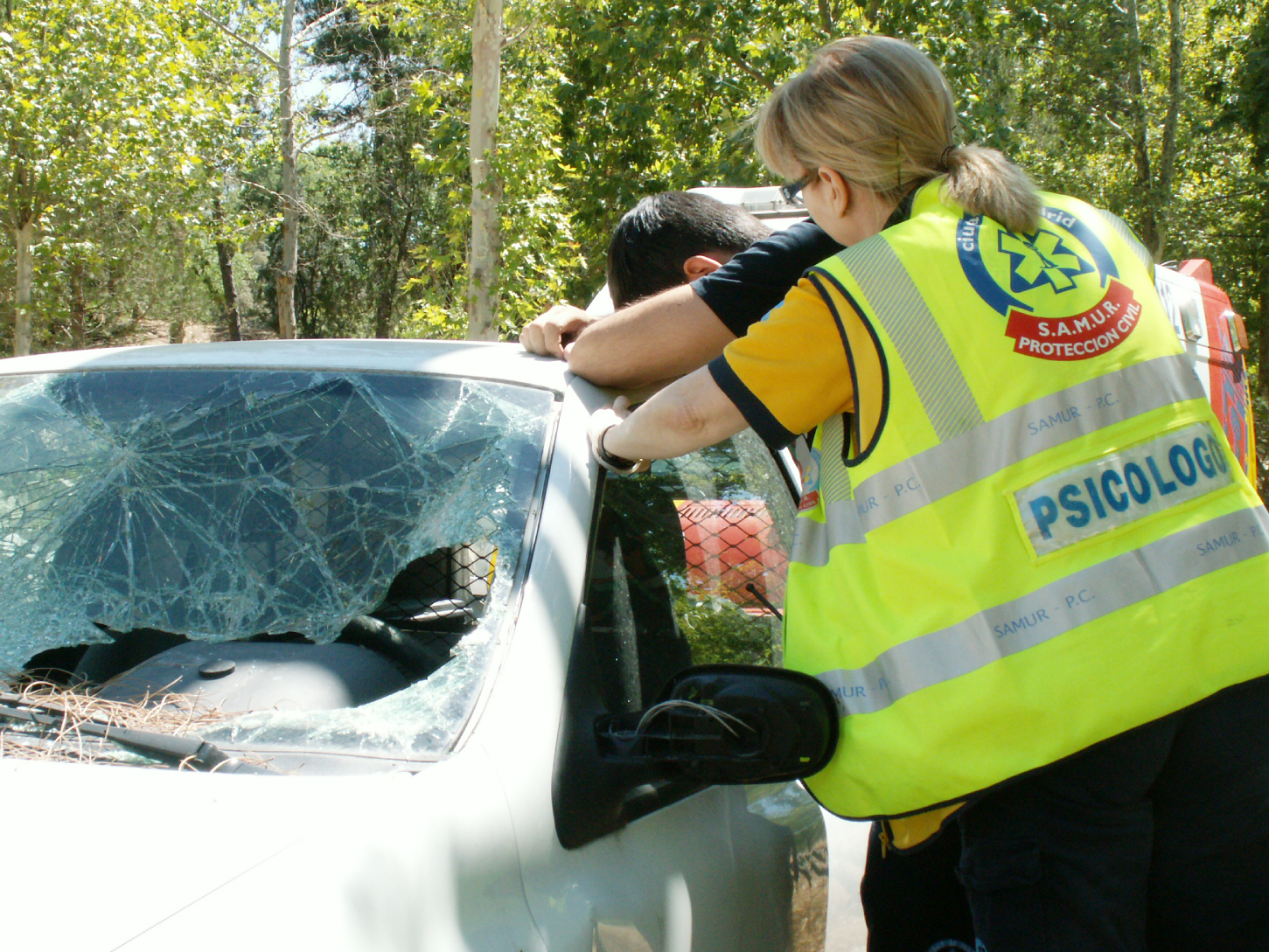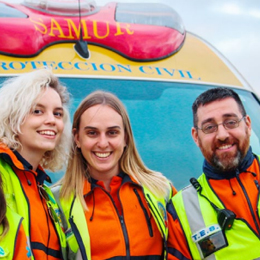Activity of the Team of psychologists in crisis intervention

Emergency Psychology is a relatively modern area with the main objective of perform psychosocial intervention after situations of high emotional impact on the scene immediately or after some minutes or hours.
Daily Emergency
Through this intervention, assessment tasks are performed, psychoeducation, prevention and referral to specific mental health public resources.
SAMUR-Civil Protection, in the forefront of Emergency Services, in its commitment of service to citizens, has the objective of provide psychological support of the patient, relatives or witnesses on the scene in special situations of emotional impact.
The main objectives of psychological intervention after a traumatic event are:- Minimize the short-term psychological impact.
- Provide adequate confrontation in situations potentially generating stress due to its high emotional content.
- Reduce the probability of occurrence of a psychopathological disorder in those patients who have been direct, indirect, involved family, friends or relatives in unexpected traumatic events.
To respond to that psychological assisstance, there is a team of psychologists on duty 24 hours, which has considerably increased the daily activity and has become a benchmark for other emergency services.
The Psychologist on duty is part of the operating SAMUR-Civil Protection staff aimed to provide emergency psychological support in potentially traumatic situations due to the high emotional impact that may cause the event to the patient's family, or witnesses involved in the same or in those where the psychologist is the ideal resource as specified in the Procedures Manual.
This resource consists of six psychologists who are operative 24-hours a day. They count on the support of another available team of volunteer psychologists.
Psychological support in Disasters
Among the activities carried out as a team , the most remarkable is the work done in the aftermath of the March 11, 2004. SAMUR-Civil Protection was responsible for the coordination of psychological intervention of the victims and relatives. Together with other institutions, more than 200 families affected were assisted. Later, the team of psychologists worked individually and in groups with 75 first responders from SAMUR-Civil Protection and 141 firefighters.
Another remarkable intervention was the performed after the attack on the T4 terminal in Barajas Airport. The families of the victims at the airport, hotel, Forensic Anatomical Institute, and during the burial of the human remains in Ecuador were accompanied (two teams traveled there to accompany the two families).
After the earthquake in Peru, in August 2007, a team of psychologists was part of the contingent moved to there. Its task was to intervene with victims as well as give support to other medical professional.
Very important was the psychological intervention performed on August 20th, 2008 as a result of the plane crash that caused 154 fatalities. Psychological intervention with families and friends was provided from the first moment at Madrid airport, performing 274 psychological interventions and 99 reporting of bad news and accompanying family members during that day and the following days at the morgue, the hotel where the families were acommodated and the Cemetery where the autopsy room was located. Another important task was to follow-up the emotional condition of the first responders from SAMUR-Civil Protection.
Once again, the actions taken were to cushion the psychological impact after what happened and prevent traumatization, cover basic needs, provide information at all times on the actions being undertaken to reduce high levels of anxiety, prepare the patient after communication of bad news to start mourning, provide psychological support to families in recognition of objects or bodies and all actions aimed at providing stability and alleviate the pain process.
Psychological Intervention Unit
In the practice of psychological counseling in outdoor public areas, it has become necessary a vehicle adapted to the circumstances in which the professional work is developed. This vehicle is called Psychological Intervention Unit (PIU).
The psychologist on duty count on this vehicle for the interventions since 2008. This vehicle meets the functions to isolate the patient from the shocking situation generating stress and social pressure. Another function is to preserve the privacy, while creating the right environment to emotional ventilation, communicate with other family members, etc.
Training in the specific area of psychology
The characteristics of the emergency psychology make necessary specific training that is taught to both volunteer psychologists and staff psychologists.The contents of this training sessions are related to operational procedures and emergency psychological intervention in crisis. Nowadays, courses on training the trainers and psychological first aid aimed at volunteers are being given.
There are several training agreements with Public Institutions (Universities, Professional Assotiations, etc), whose students make practices with tutorship of the psychologist of duty in real interventions.
Psychological support to the first responder
Working in emergency services implies exposure to situations of high emotional impact that can alter the professional well-being. In this sense, several training courses on coping with work stress and PTSD have been developed. These activities provide the participants strategies and skills that enable them to the daily work.
It also provides individual counseling and special assistance to the responders in mass casualty disasters both in Madrid and in humanitarian aid missions abroad.


